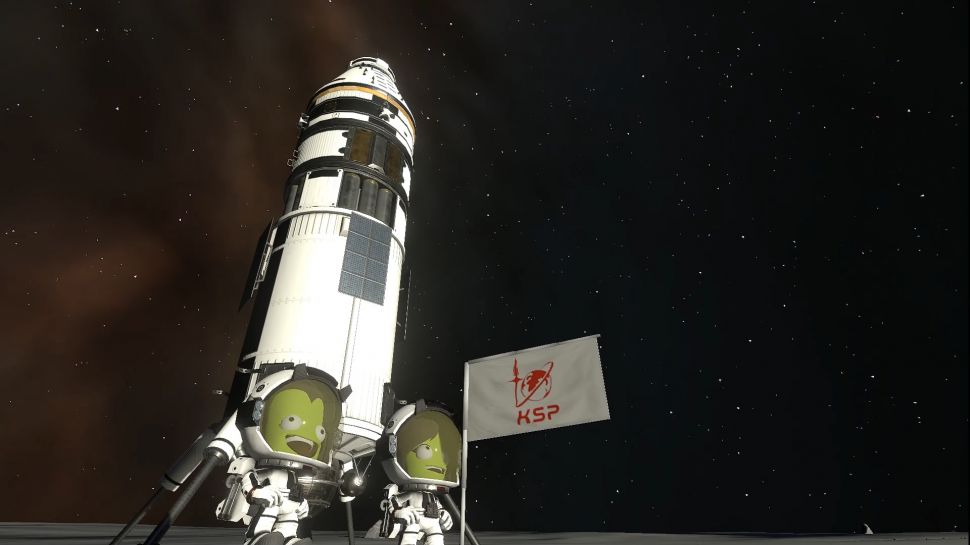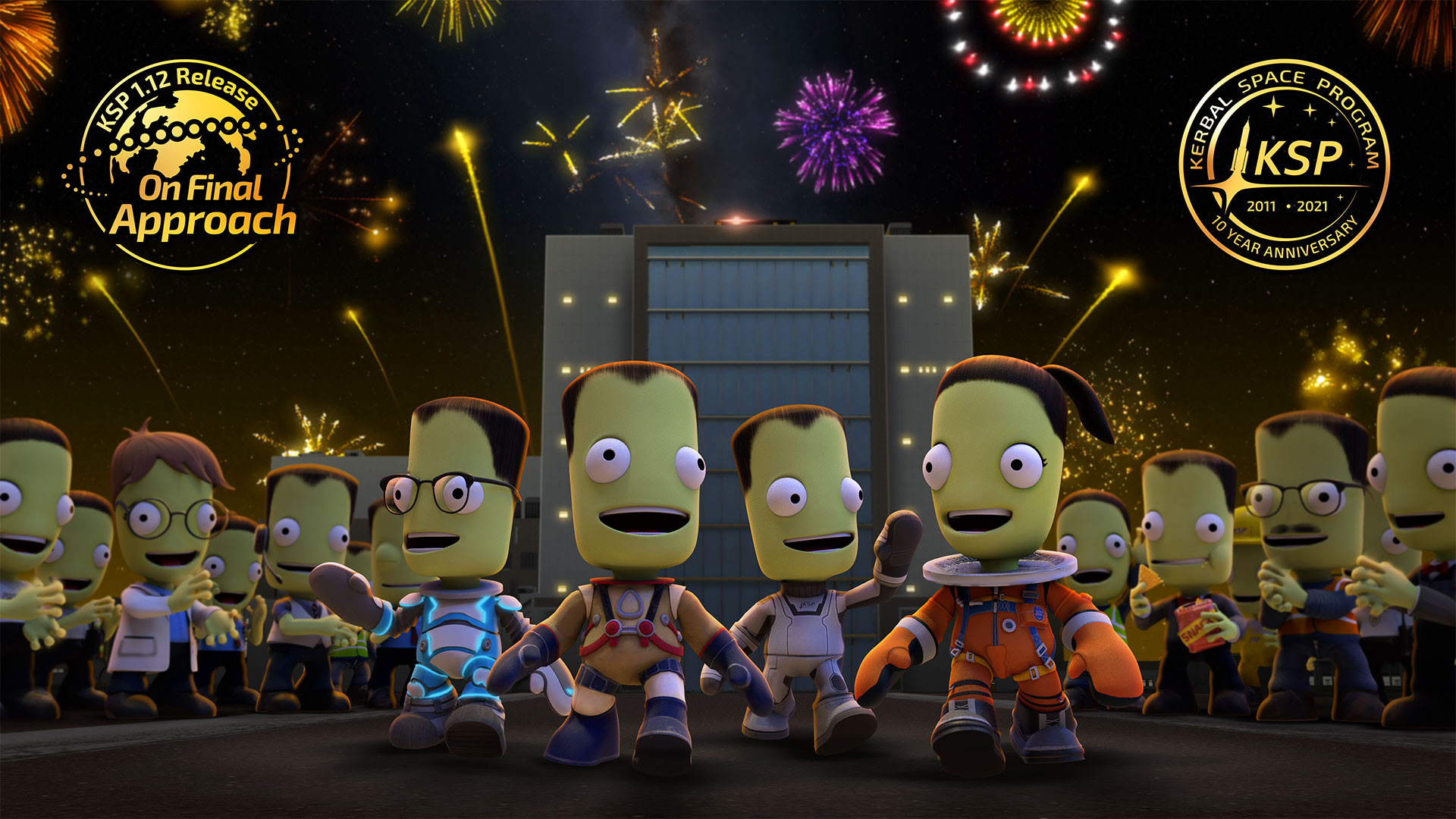
Kerbal Space Program
Kerbal Space Program is a space flight simulation video game developed by Mexican developer Squad for Microsoft Windows, macOS, Linux, PlayStation 4, and Xbox One. In the game, players direct a nascent space program, staffed and crewed by green humanoid aliens known as "Kerbals". The game features a realistic orbital physics engine, allowing for various real-life orbital maneuvers such as Hohmann transfer orbits and orbital rendezvous. The first public version was released digitally on Squad's Kerbal Space Program storefront on 24 June 2011, and joined Steam's early access program on 20 March 2013. The game was released out of beta on 27 April 2015. Kerbal Space Program has support for user-created mods that add new features. Popular mods have received support and inclusion in the game by Squad.






